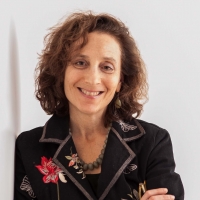
Curriculum Vitae
plevitt@wellesley.edu
(781) 283-2186
Sociology
B.A., Brandeis University; M.S., Columbia University; Ph.D., Massachusetts Institute of Technology
Peggy Levitt
Mildred Lane Kemper Professor of SociologyCultural and intellectual inequality, museums, decentered knowledge production and pedagogy, sociology of art and literature, migration, transnational social protection.
Peggy Levitt is Chair and Professor of Sociology and the Mildred Lane Kemper Chair of Sociology at Wellesley College. She is also a co-founder of the Global (De)Centre. Her latest book, Transnational Social Protection: Social Welfare Across National Borders (co-authored with Erica Dobbs, Ken Sun, and Ruxandra Paul) was published by Oxford University Press in 2023. Her current book project, Move Over, Mona Lisa. Move Over, Jane Eyre: Making the World’s Universities, Museums, and Libraries More Welcoming to Everyone will be published by Stanford University Press.
Peggy co-directed the Transnational Studies Initiative and the Politics and Social Change Workshop at the Weatherhead Center for International Affairs at Harvard University and the Hauser Center for Nonprofit Organizations at Harvard Kennedy School from 1998-2020. She received Honorary Doctoral Degrees from the University of Helsinki (2017) and from Maastricht University (2014). She has held numerous fellowships and guest professorships including, most recently, at the Rockefeller Foundation Bellagio Residency Program (2024), the Institute for Human Sciences (IWM) in Vienna (2023), the Institute for the Advanced Study of the Humanities (IASH) at the University of Edinburgh (2023), the Institut Convergences Migration in Paris (2022), the European University Institute (2017-2019) and at the Baptist University of Hong Kong (2019).
Her earlier books include Artifacts and Allegiances: How Museums Put the Nation and the World on Display (University of California Press 2015), Religion on the Edge (Oxford University Press 2012), God Needs No Passport (New Press 2007), The Transnational Studies Reader (Routledge 2007), The Changing Face of Home (Russell Sage 2002), and The Transnational Villagers (UC Press 2001).
RESEARCH
My current research addresses two broad sets of questions: Cultural and Intellectual Inequality and Transnational Social Protection.
